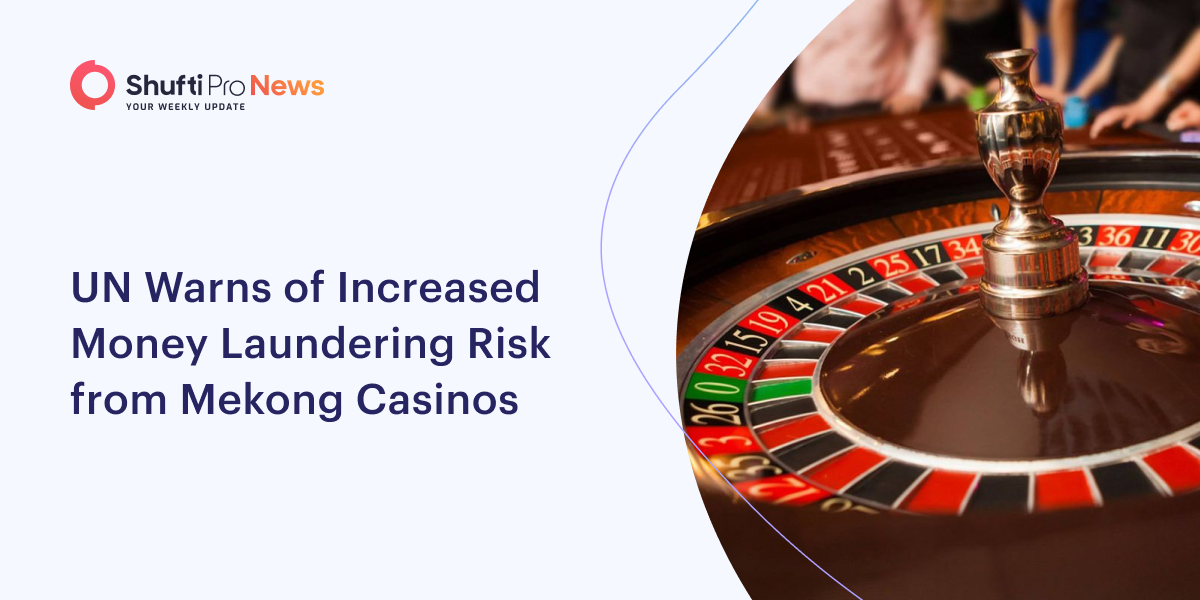UN Warns of Increased Money Laundering Risk from Mekong Casinos

The UN officials claimed transnational criminal gangs are exploiting Southeast Asia’s gaming and online gambling industry as a shadow banking system to disguise their identity and launder money.
According to the United Nations Officials, the digital gaming and gambling industry is the most convenient source for bad actors to launder money. The loopholes in Southeast Asia’s digital AML system proliferate money laundering and terrorist financing through online gambling platforms.
The UN Office on Drugs and Crimes revealed in the latest research and analysis, including data from the local law enforcement agencies, regional online gambling and gaming industry gathered billions of dollars from illegal gambling, money laundering, terrorist financing, drug trafficking and other organised crimes. These online platforms make it harder for financial crime monitoring authorities to find the money trail. The UNODC deputy representative for Southeast Asia and the Pacific, Benedikt Hofmann, stated, “it is really a paradigm shift in how organised crime networks active in the Mekong have been using technology not just to expand their activities and revenue streams, but also to create a banking system to move these massive amounts of money around undetected.”
According to the UNODC, the region’s gaming business saw an enormous increase around six years ago when China began to clamp down on illicit activities and cross-border money transfers. The Mekong area was the first choice for several casino companies searching for less restrictive nations.
The officials claimed that launderers conduct “offsetting” techniques to launder money through gambling platforms. Customers make deposits into one gambling operator’s account in one country and, with the assistance of that operator, withdraw an equivalent amount from a second account in a different jurisdiction. Despite being intended for gambling, officials in the area claim that the service is increasingly being used to transfer and launder illicit funds.
Hofmann stated, “casinos have long played a role in money laundering in Southeast Asia, but the surge of online gambling has accelerated this in ways that weren’t expected. High volumes of large, anonymous transactions, very limited regulation and compliance standards and the transboundary nature of services make the online gambling sector really attractive for people wanting to hide transactions.”
Another technique scammers use to launder money through gambling sites is “white-labelling”, where all the advanced software and services required to operate an online gambling site can be purchased from a supplier or established in just a couple of weeks. According to the UNODC, this enables criminals with little to no experience in gaming or technology to open their virtual casinos to conceal their money transfers.
Suggested Reads:
MONEY LAUNDERING CONCERNS PROMPT HONG KONG BANKS TO REJECT CRYPTO TRANSACTIONS
MONEY LAUNDERING & VAT FRAUD ACQUISITION AGAINST LYCAMOBILE
CRYPTOCURRENCIES NEED REGULATION TO PREVENT MONEY LAUNDERING, SAYS SINGAPORE MINISTER

 Explore Now
Explore Now













